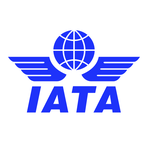The Passport Power Play: Singapore's Ascendancy and Global Mobility Gaps
July 27, 2024, 1:30 am

Location: Tajikistan, Khatlon Region, International
Employees: 201-500
Founded date: 1997

Location: Switzerland, Geneva
Employees: 1001-5000
Founded date: 1945
In the world of travel, passports are the golden tickets. They unlock doors to countries, cultures, and experiences. Recently, Singapore has reclaimed its crown as the most powerful passport on the planet, according to the Henley Passport Index. This tiny city-state has surged ahead, offering its citizens access to 195 destinations without the hassle of a visa. It’s a remarkable feat, a testament to Singapore’s diplomatic prowess and global standing.
The rankings reveal a stark reality. While Singapore shines at the top, countries like Afghanistan languish at the bottom, with access to only 26 destinations. This disparity highlights a growing mobility gap. The rich get richer, and the poor are left behind. The numbers tell a compelling story. Singapore's passport holders can visit 169 more countries visa-free than those holding an Afghan passport. This gap is not just a statistic; it represents dreams deferred and opportunities lost.
The Henley Passport Index is more than just a ranking. It reflects geopolitical dynamics and the state of international relations. Countries like France, Germany, Italy, Japan, and Spain now share the second spot, each with access to 192 destinations. Meanwhile, the United States, once a titan in passport power, has slipped to eighth place, with access to just 186 countries. This decline marks a decade-long trend, a slow erosion of America’s global standing.
The aviation industry is another player in this game. With nearly 5 billion people expected to travel in 2024, airlines are on the brink of a financial rollercoaster. They anticipate revenues nearing $1 trillion, but expenses are set to hit record highs. The profit margins are razor-thin, just enough to buy a cup of coffee. Despite these challenges, the cost of air travel has decreased significantly over the past decade, making it more accessible to many.
In this landscape, the United Arab Emirates has made headlines. For the first time, it has entered the top ten, climbing an impressive 53 places since 2006. This leap reflects a strategic push to enhance its global image and attract tourists. Conversely, Venezuela’s passport power has plummeted, dropping 17 places. The upcoming presidential elections could be a turning point for millions of Venezuelans who have fled their homeland in search of stability.
The implications of these rankings extend beyond mere travel convenience. They touch on immigration policies and international relations. Business groups in the U.S. are on edge, anticipating potential changes under a new administration. Concerns about immigration reform loom large, with fears of mass deportations and tightened borders. The stakes are high, and the outcome could reshape the lives of millions.
Africa presents a particularly troubling picture. Recent research reveals that African applicants face a staggering 30% rejection rate for Schengen visas, compared to just 10% globally. This bias against African nationals underscores a systemic issue. The poorer the country of origin, the higher the rejection rate. It’s a triple whammy: lower passport power, higher rejection rates, and limited economic mobility. For many, the dream of travel remains just that—a dream.
The Henley Global Mobility Report paints a vivid picture of the world’s passport landscape. It serves as a reminder of the privileges some enjoy while others struggle. The mobility gap is not merely a statistic; it’s a reflection of global inequality. As countries vie for the top spot, the consequences ripple through societies, affecting lives and futures.
In conclusion, the passport rankings are more than a list. They are a mirror reflecting the state of our world. Singapore’s triumph is a beacon of success, while Afghanistan’s plight is a stark reminder of the challenges many face. The aviation industry’s struggles highlight the complexities of global travel. And the disparities in visa acceptance rates reveal deep-seated biases that need addressing. As we navigate this intricate web of mobility, it’s crucial to recognize the power of passports—not just as travel documents, but as symbols of opportunity and access in an increasingly interconnected world.
The rankings reveal a stark reality. While Singapore shines at the top, countries like Afghanistan languish at the bottom, with access to only 26 destinations. This disparity highlights a growing mobility gap. The rich get richer, and the poor are left behind. The numbers tell a compelling story. Singapore's passport holders can visit 169 more countries visa-free than those holding an Afghan passport. This gap is not just a statistic; it represents dreams deferred and opportunities lost.
The Henley Passport Index is more than just a ranking. It reflects geopolitical dynamics and the state of international relations. Countries like France, Germany, Italy, Japan, and Spain now share the second spot, each with access to 192 destinations. Meanwhile, the United States, once a titan in passport power, has slipped to eighth place, with access to just 186 countries. This decline marks a decade-long trend, a slow erosion of America’s global standing.
The aviation industry is another player in this game. With nearly 5 billion people expected to travel in 2024, airlines are on the brink of a financial rollercoaster. They anticipate revenues nearing $1 trillion, but expenses are set to hit record highs. The profit margins are razor-thin, just enough to buy a cup of coffee. Despite these challenges, the cost of air travel has decreased significantly over the past decade, making it more accessible to many.
In this landscape, the United Arab Emirates has made headlines. For the first time, it has entered the top ten, climbing an impressive 53 places since 2006. This leap reflects a strategic push to enhance its global image and attract tourists. Conversely, Venezuela’s passport power has plummeted, dropping 17 places. The upcoming presidential elections could be a turning point for millions of Venezuelans who have fled their homeland in search of stability.
The implications of these rankings extend beyond mere travel convenience. They touch on immigration policies and international relations. Business groups in the U.S. are on edge, anticipating potential changes under a new administration. Concerns about immigration reform loom large, with fears of mass deportations and tightened borders. The stakes are high, and the outcome could reshape the lives of millions.
Africa presents a particularly troubling picture. Recent research reveals that African applicants face a staggering 30% rejection rate for Schengen visas, compared to just 10% globally. This bias against African nationals underscores a systemic issue. The poorer the country of origin, the higher the rejection rate. It’s a triple whammy: lower passport power, higher rejection rates, and limited economic mobility. For many, the dream of travel remains just that—a dream.
The Henley Global Mobility Report paints a vivid picture of the world’s passport landscape. It serves as a reminder of the privileges some enjoy while others struggle. The mobility gap is not merely a statistic; it’s a reflection of global inequality. As countries vie for the top spot, the consequences ripple through societies, affecting lives and futures.
In conclusion, the passport rankings are more than a list. They are a mirror reflecting the state of our world. Singapore’s triumph is a beacon of success, while Afghanistan’s plight is a stark reminder of the challenges many face. The aviation industry’s struggles highlight the complexities of global travel. And the disparities in visa acceptance rates reveal deep-seated biases that need addressing. As we navigate this intricate web of mobility, it’s crucial to recognize the power of passports—not just as travel documents, but as symbols of opportunity and access in an increasingly interconnected world.